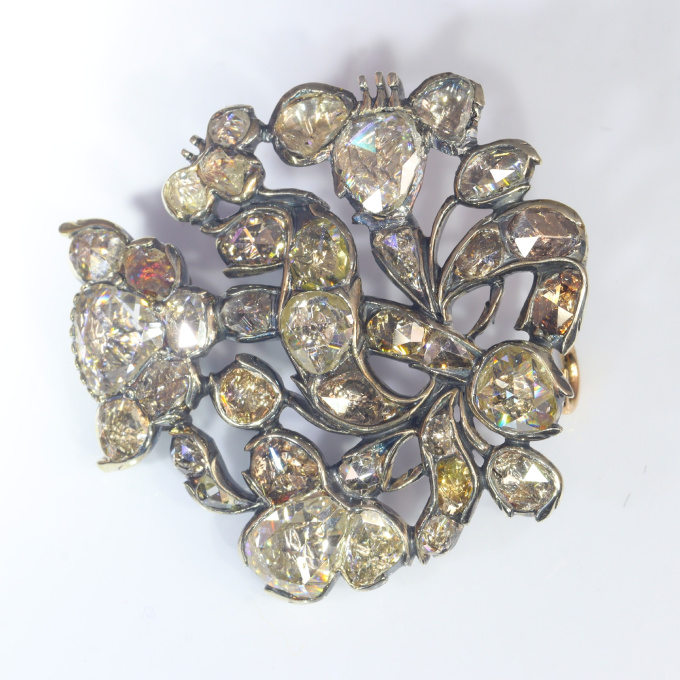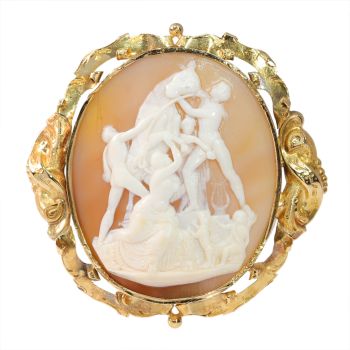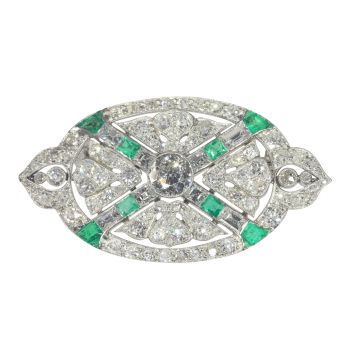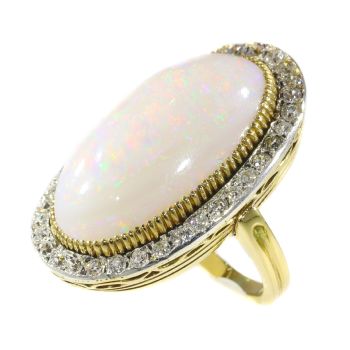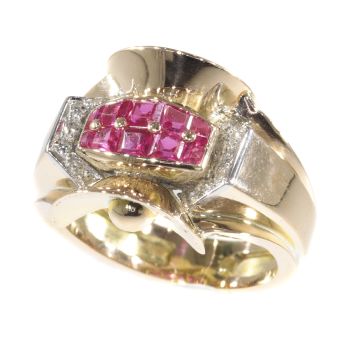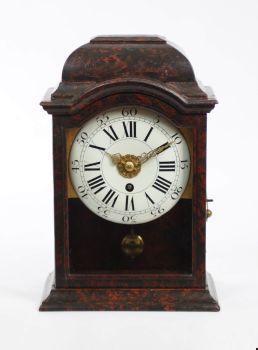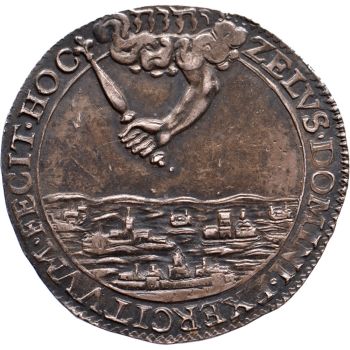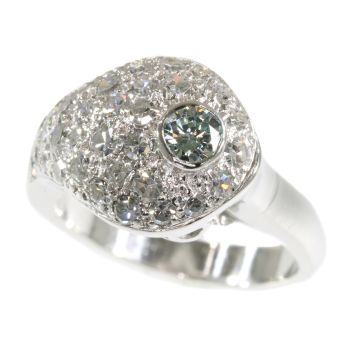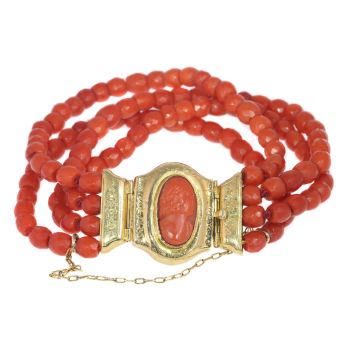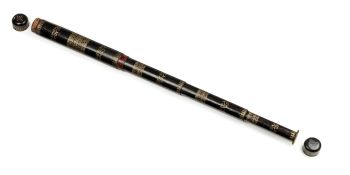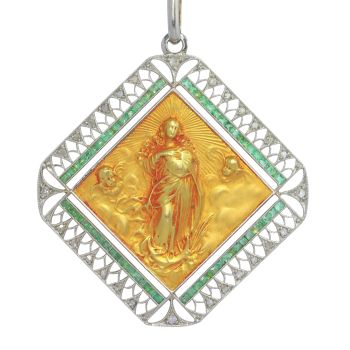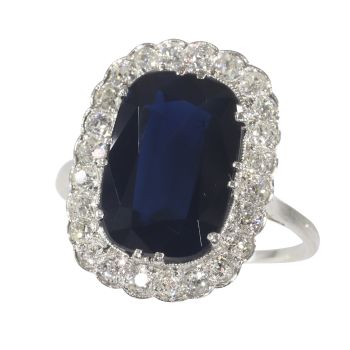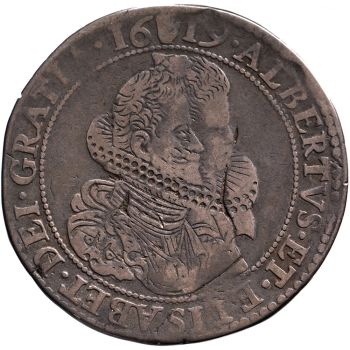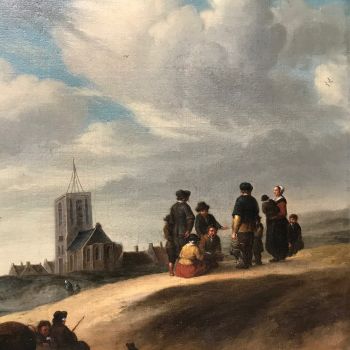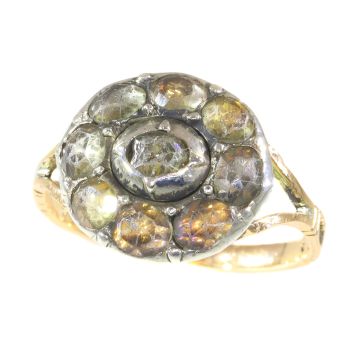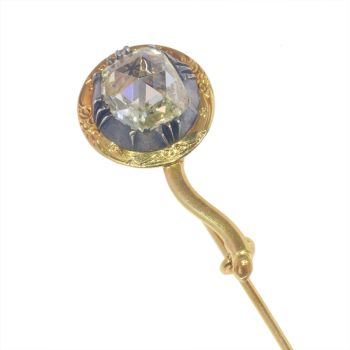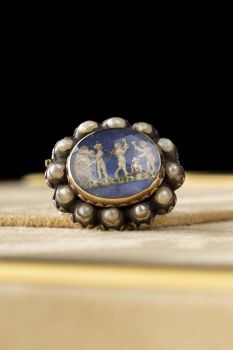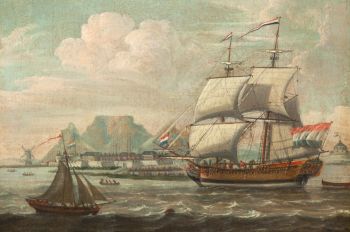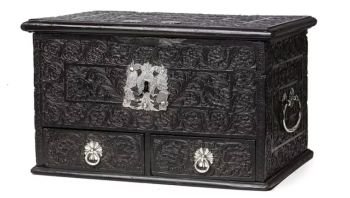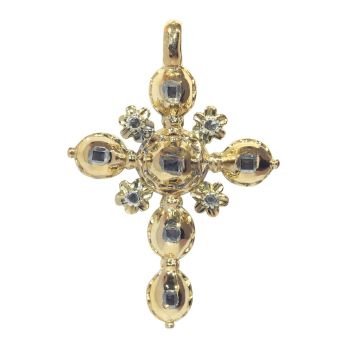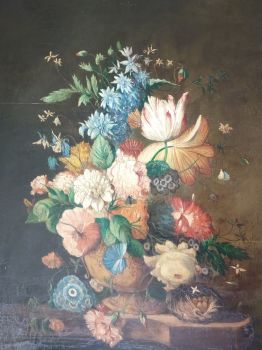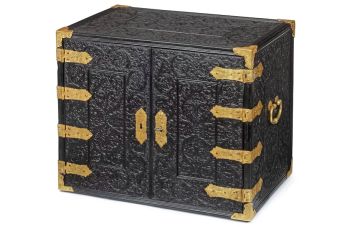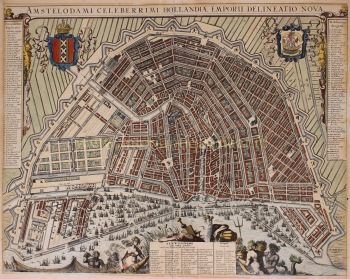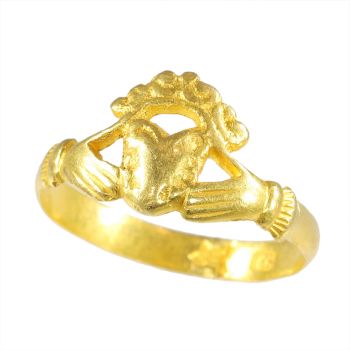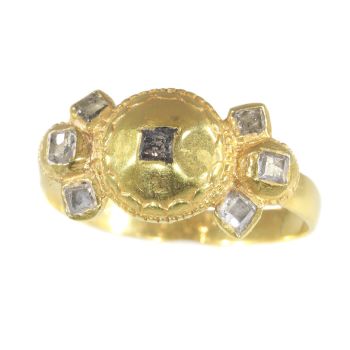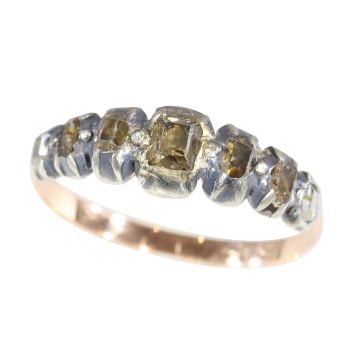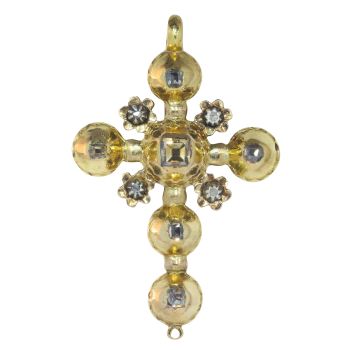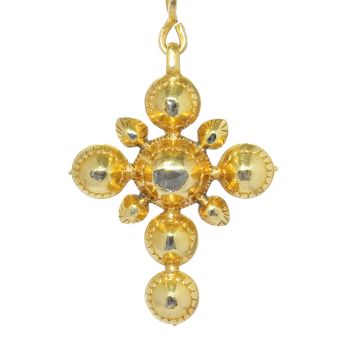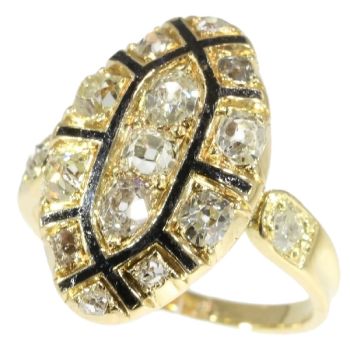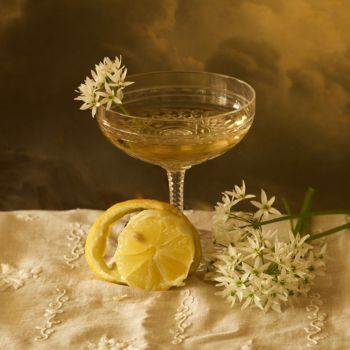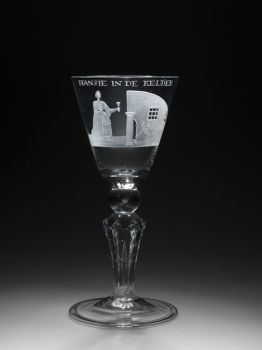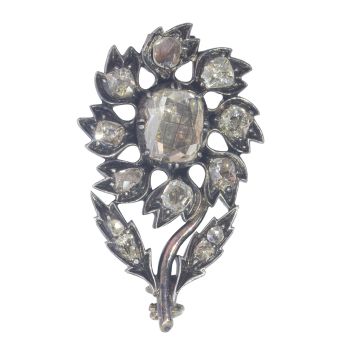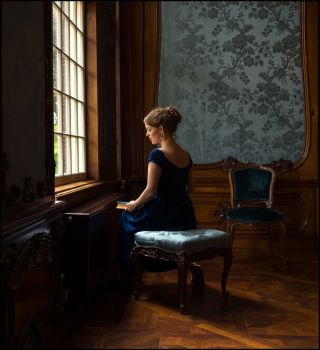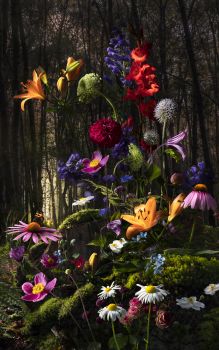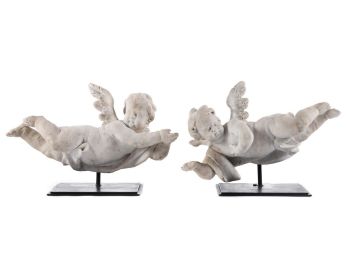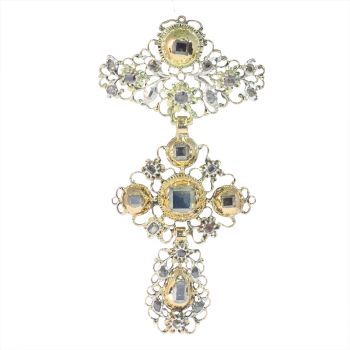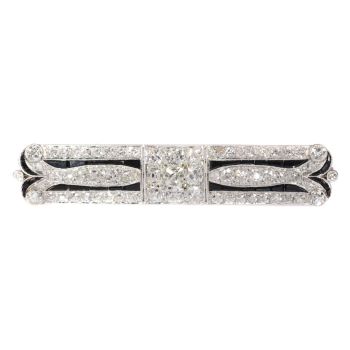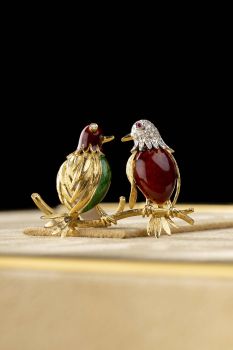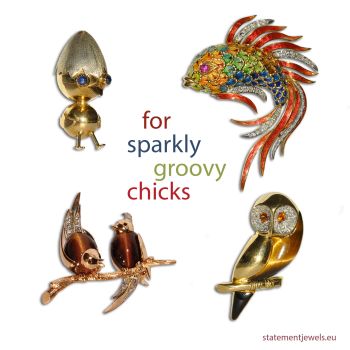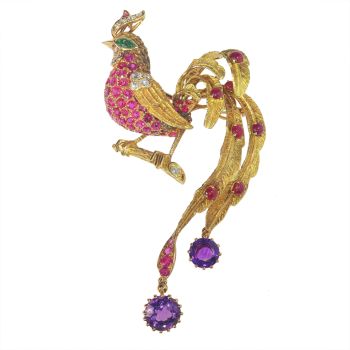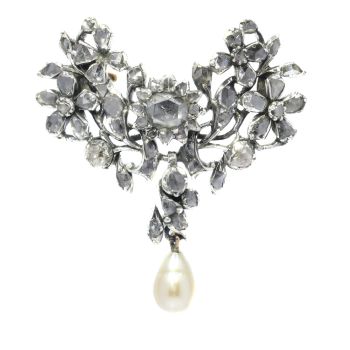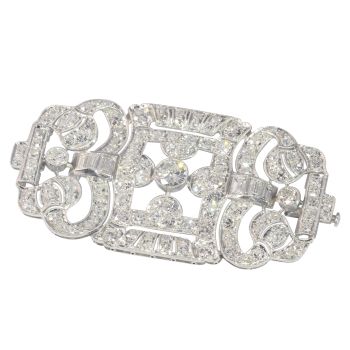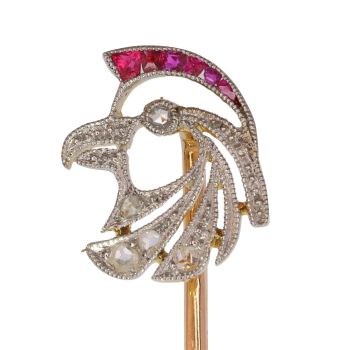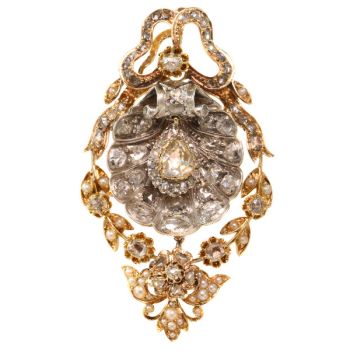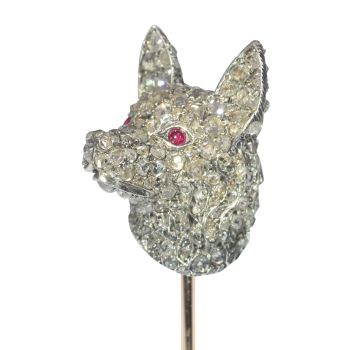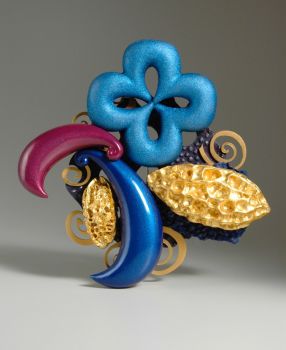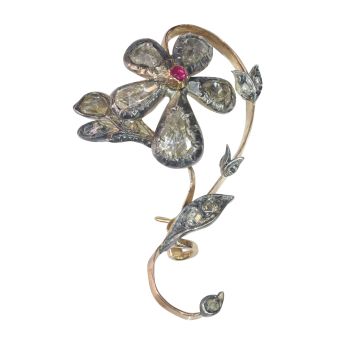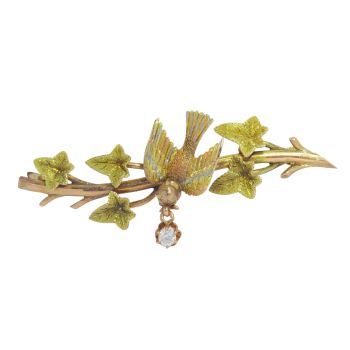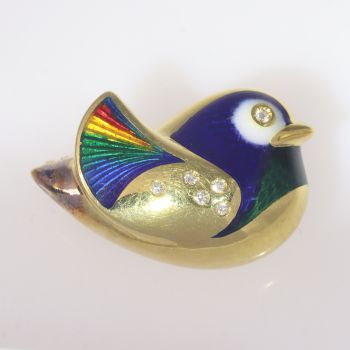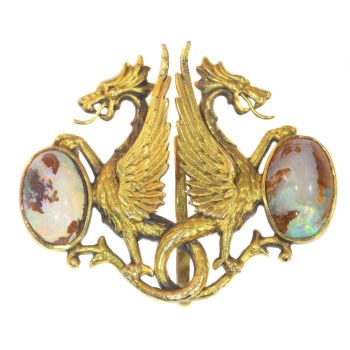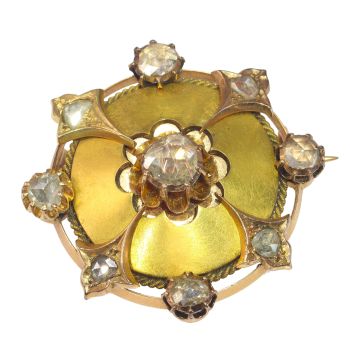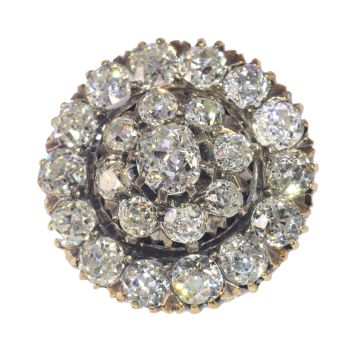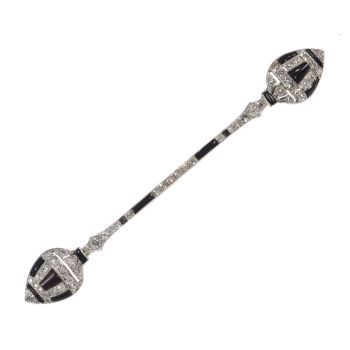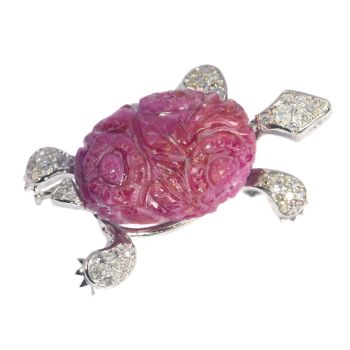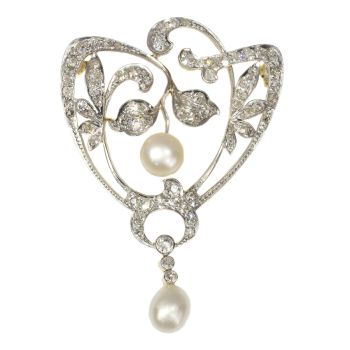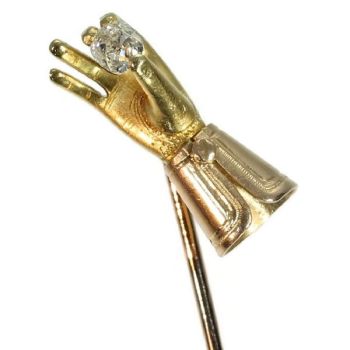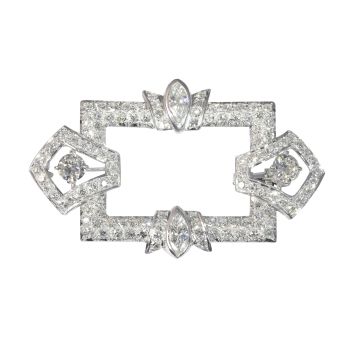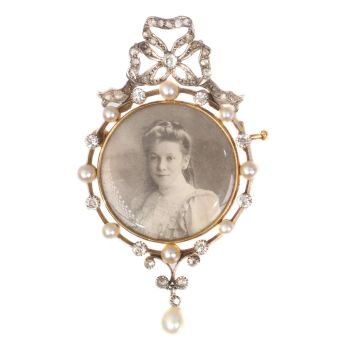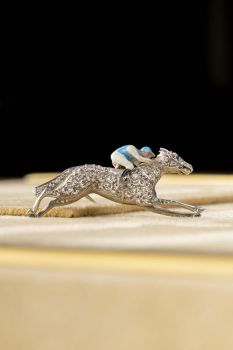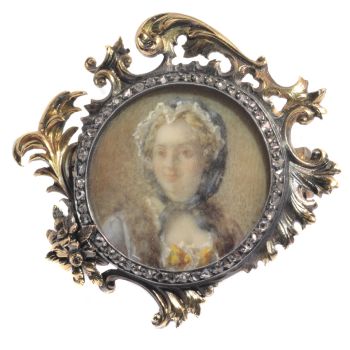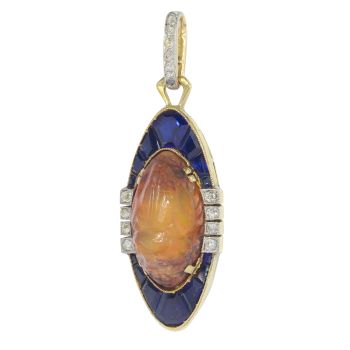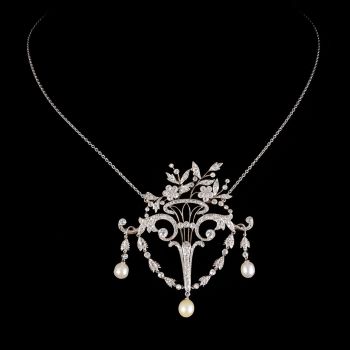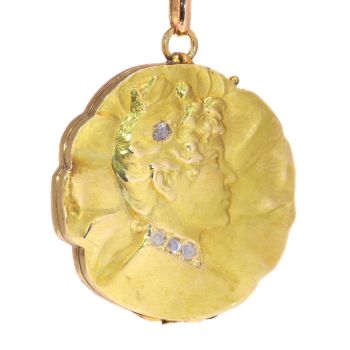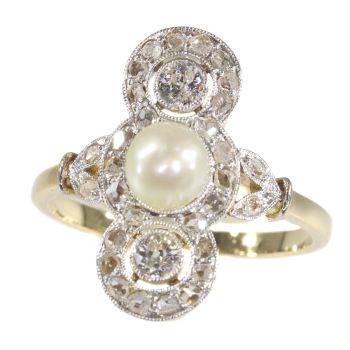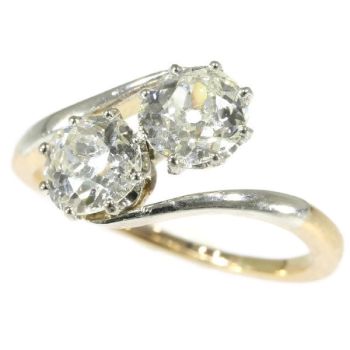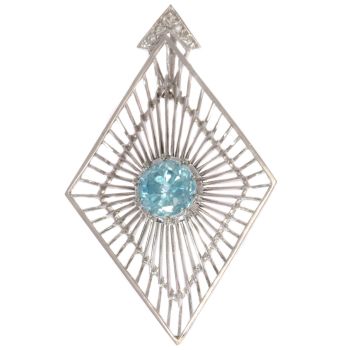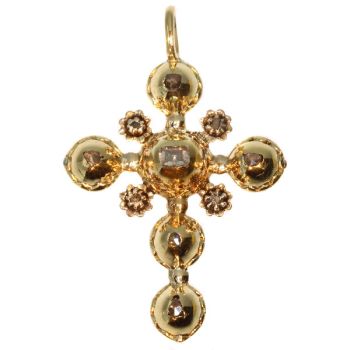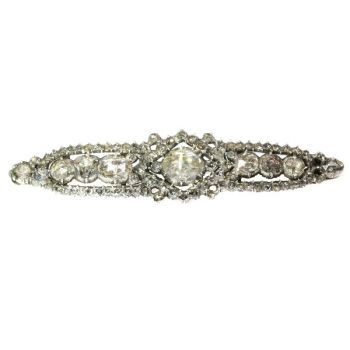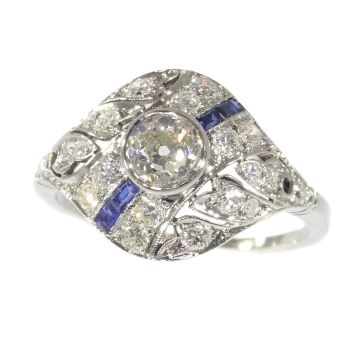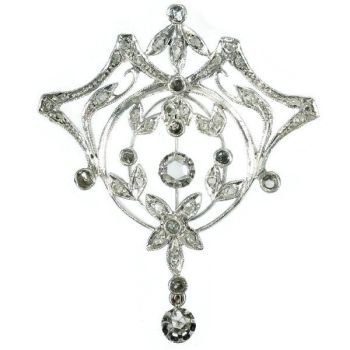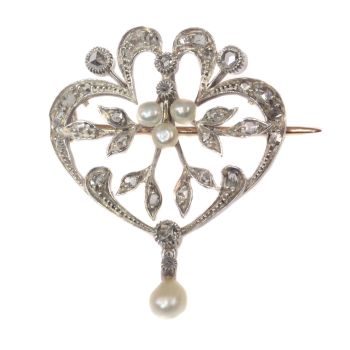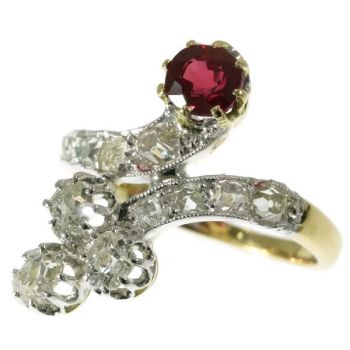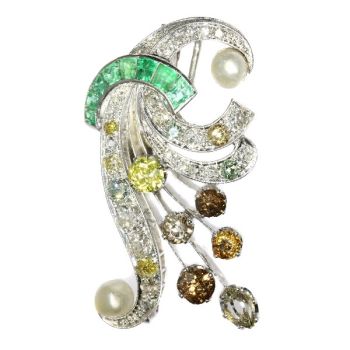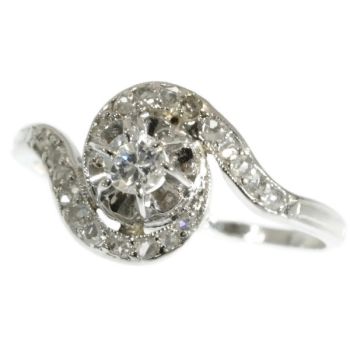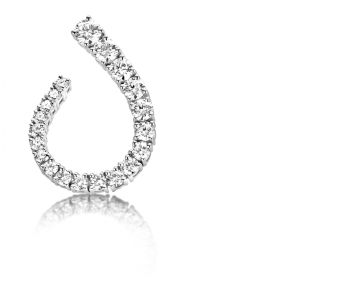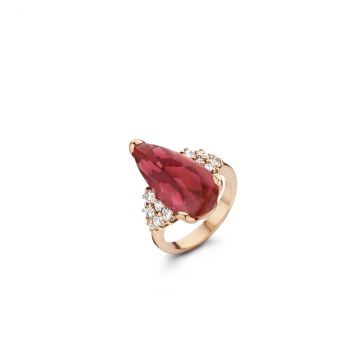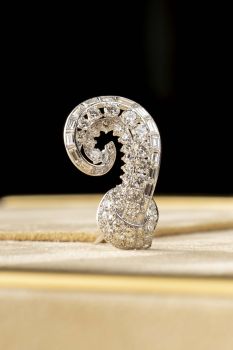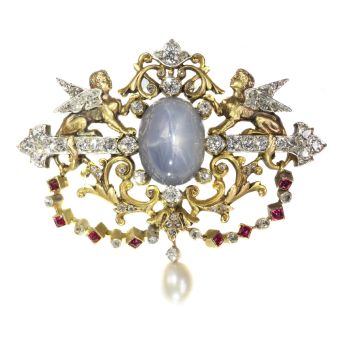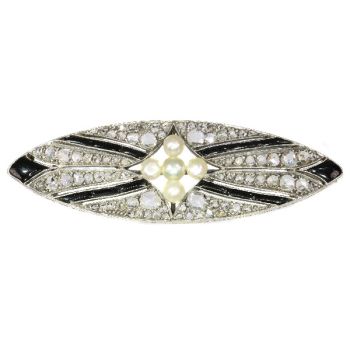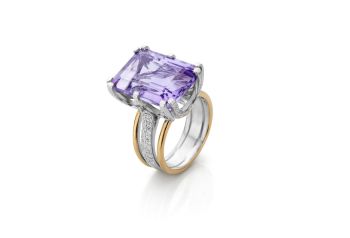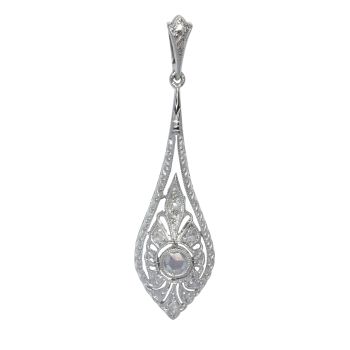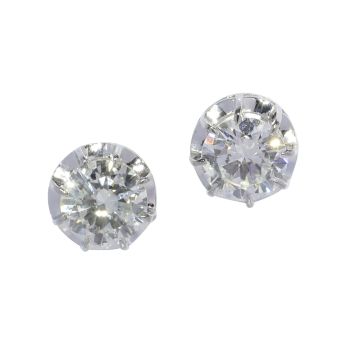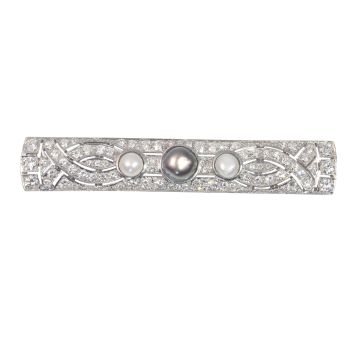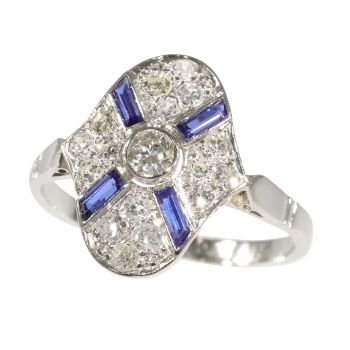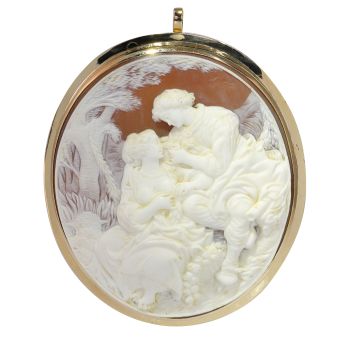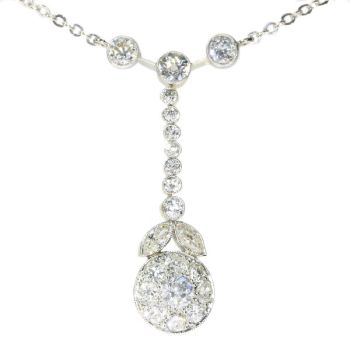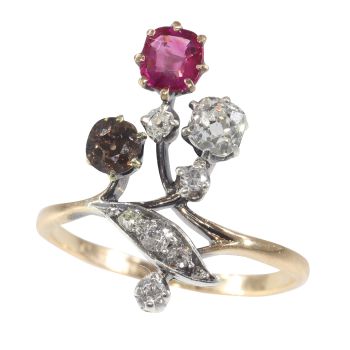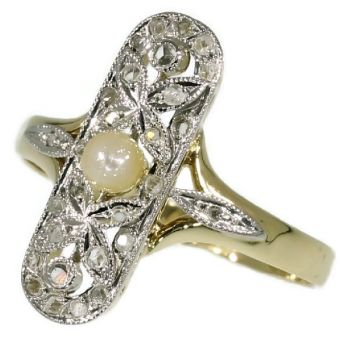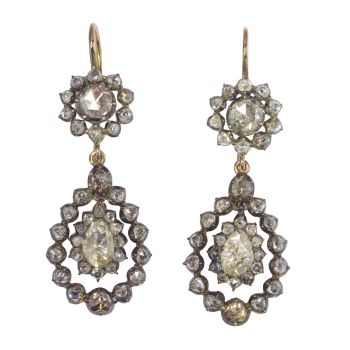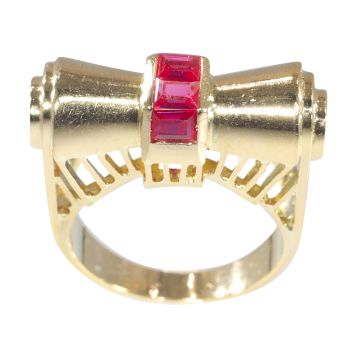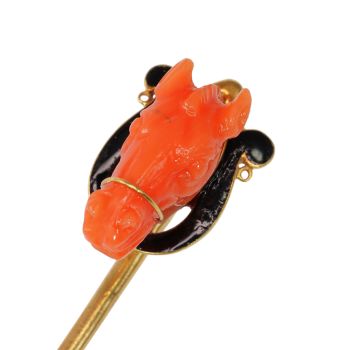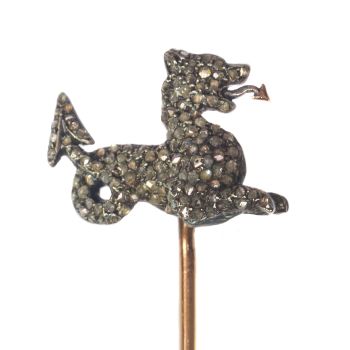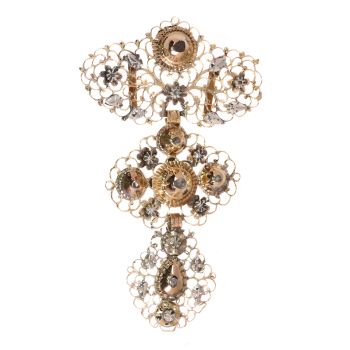17th Century baroque antique rose cut diamond brooch 1680
Artista Desconocido
DiamantePiedra preciosa
€ 17.500
Adin Fine Antique Jewellery
- Sobre la obra de arte
Antique jewelry object group
brooch
Condition
very good condition
more info on our condition scale
Style
Baroque - Baroque is an artistic style prevalent from the late 16th century to the early 18th century in Europe. It is most often defined as "the dominant style of art in Europe between the Mannerist and Rococo eras, a style characterized by dynamic movement, overt emotion and self-confident rhetoric".
See also: Baroque
more info on styles
Style specifics
Baroque is a style in art and decoration that developed shortly before 1600 and remained current in Europe until the emergence of the Rococo style c.1730. It was started in Italy, and spread to Germany, Austria, the Low Countries, and Spain and Portugal, with only a somewhat severely classical version being popular in France under Louis XIV. The style was a development of the Renaissance style and is characterized by lively, curved, and exuberant forms, by vigorous movement, and by rich ornament, based on classical sources, being symmetrical as distinguished from the asymmetry of the following Rococo style.
Period
ca. 1680
Events & facts of this era, poetry of this era, fashion of this era.
Material
18K red gold (touchstone tested)
more info on precious metals
Technique
The rose cuts are set on foil. This is a special technique that was used to bring the lustre of the diamonds to its best quality.
Diamonds
36 rose cut diamonds. We do not have the weight of the diamonds which is normal in our trade when it comes to rose cuts.
All diamonds we offer are screened by the I.J.G.C. for whether they are natural or synthetic, and all diamonds in this jewel are 100% guaranteed to be natural.
Birthstones
Diamond is the birthstone (or month stone) for April.
more info on birthstones
Hallmarks
No trace.
more info on hallmarks
Dimensions
3,08 cm (1,21 inch) x 2,96 cm (1,17 inch)
see picture with a ruler in millimeters and inches
Weight
9,00 gram (5,79 dwt)
Adin Reference Nº
22027-0087
Copyright photography
Adin, fine antique jewellery
Additional information
our latest acquisitions
jewelry glossary
wall of fame
visit us in Antwerp
subscribe to our mailinglist
- Sobre el artista
Puede suceder que un artista o creador sea desconocido.
Algunas obras no deben determinarse por quién está hecho o por (un grupo de) artesanos. Algunos ejemplos son estatuas de la Antigüedad, muebles, espejos o firmas que no son claras o legibles, pero también algunas obras no están firmadas en absoluto.
También puedes encontrar la siguiente descripción:
•"Atribuido a …." En su opinión, probablemente una obra del artista, al menos en parte.
•“Estudio de….” o “Taller de” En su opinión, una obra ejecutada en el estudio o taller del artista, posiblemente bajo su supervisión
•“Círculo de…” En su opinión, una obra del período del artista que muestra su influencia, estrechamente asociado con el artista pero no necesariamente su alumno.
•"Estilo de …." o “Seguidor de…”. En su opinión, una obra ejecutada al estilo del artista pero no necesariamente por un alumno; puede ser contemporáneo o casi contemporáneo
•"Manera de …." En su opinión una obra al estilo del artista pero de fecha posterior
•"Después …." En su opinión, una copia (de cualquier fecha) de una obra del artista
•“Firmado…”, “Fechado…” o “Inscrito” En su opinión, la obra ha sido firmada/fechada/inscrita por el artista. La adición de un signo de interrogación indica un elemento de duda.
•“Con firma…”, “Con fecha…”, “Con inscripción…” o “Lleva firma/fecha/inscripción” en su opinión la firma/fecha/inscripción ha sido añadida por alguien que no es el artista
¿Está interesado en comprar esta obra de arte?
Artwork details
Related artworks
Artista Desconocido
UN RARO TELESCOPIO DE CUERO LACADO JAPONÉS GRANDE1750 - 1800
Precio a consultarZebregs & Röell - Fine Art - Antiques
1 - 4 / 12Johannes van Dreght
Antique Dutch still life flowers in vase1740 - 1800
Precio a consultarGallerease Selected
Artista Desconocido
A pair of angels Antwerp, 17th century, Carrara marble17th century
Precio a consultarFrederik Muller
1 - 4 / 24- 1 - 4 / 24
Fontana
Broche-colgante de canasta de flores1900 - 1905
Precio a consultarAns Hemke-Kuilboer Juwelier & Antiquair
1 - 4 / 24- 1 - 4 / 12

